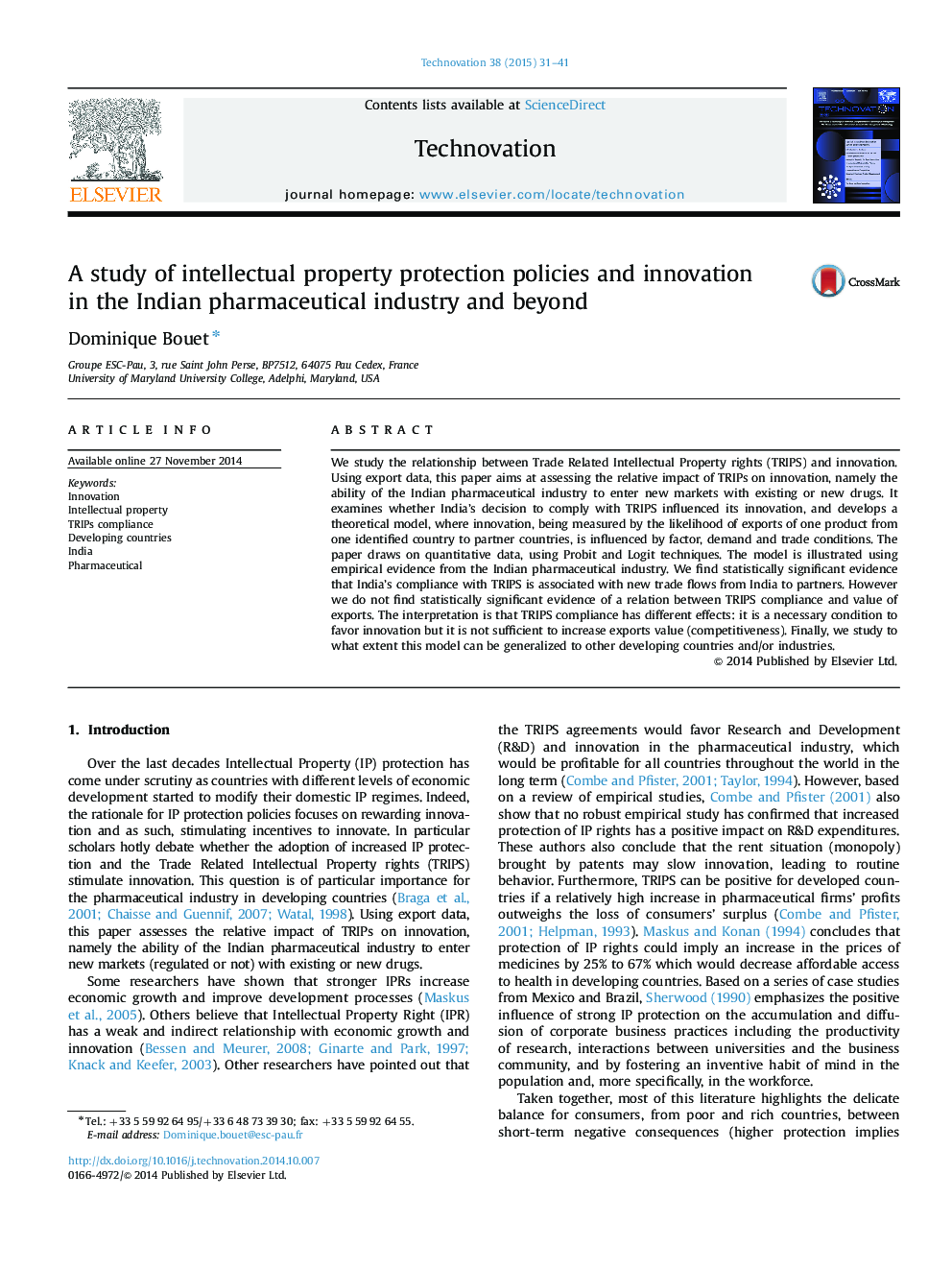| Article ID | Journal | Published Year | Pages | File Type |
|---|---|---|---|---|
| 1021848 | Technovation | 2015 | 11 Pages |
•We measure product and market innovation by the likelihood of exports.•We find out a significant relation between India’s TRIPs compliance and innovation.•Importing countries’ TRIPs compliance has a positive impact on innovation in India.•There is no impact of India’s TRIP compliance on export value.•There is no significant relationship between demand conditions and innovation.
We study the relationship between Trade Related Intellectual Property rights (TRIPS) and innovation. Using export data, this paper aims at assessing the relative impact of TRIPs on innovation, namely the ability of the Indian pharmaceutical industry to enter new markets with existing or new drugs. It examines whether India’s decision to comply with TRIPS influenced its innovation, and develops a theoretical model, where innovation, being measured by the likelihood of exports of one product from one identified country to partner countries, is influenced by factor, demand and trade conditions. The paper draws on quantitative data, using Probit and Logit techniques. The model is illustrated using empirical evidence from the Indian pharmaceutical industry. We find statistically significant evidence that India’s compliance with TRIPS is associated with new trade flows from India to partners. However we do not find statistically significant evidence of a relation between TRIPS compliance and value of exports. The interpretation is that TRIPS compliance has different effects: it is a necessary condition to favor innovation but it is not sufficient to increase exports value (competitiveness). Finally, we study to what extent this model can be generalized to other developing countries and/or industries.
